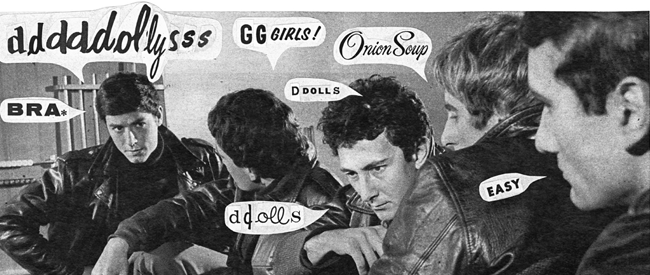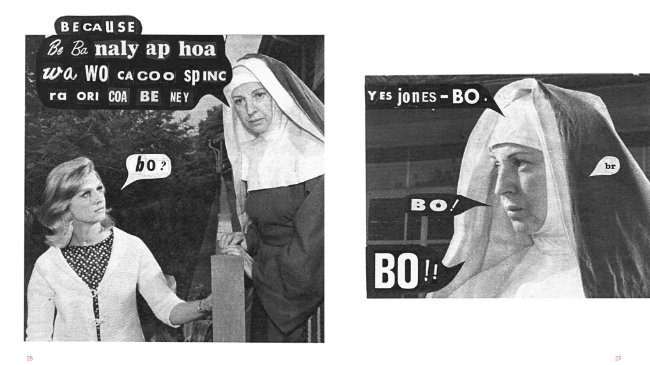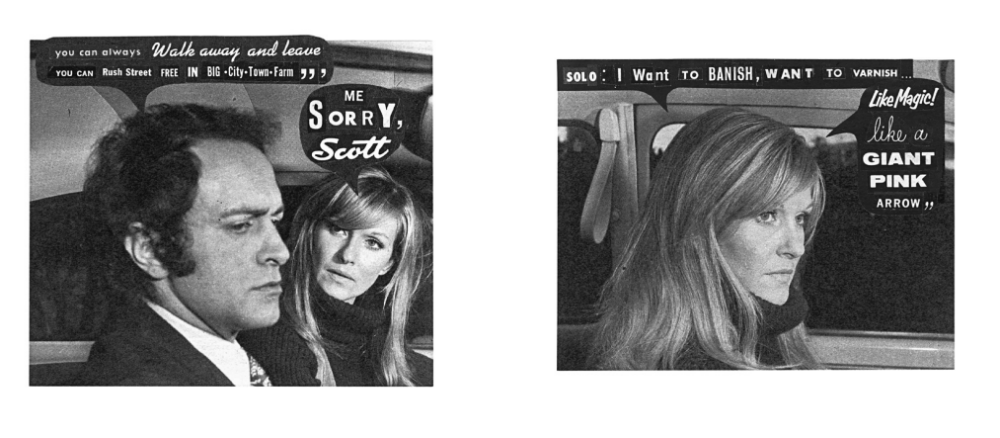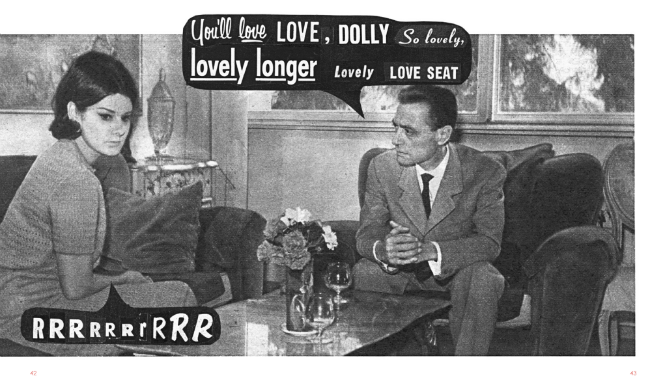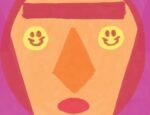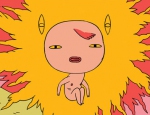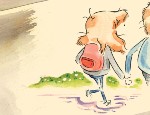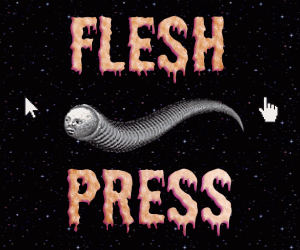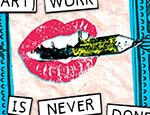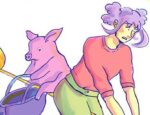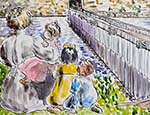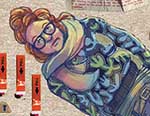In the brief window between the deaths of Victoria Wood and Prince a few weeks ago, I got to thinking about that blissful complacency you enjoy when you’re young and assume that your favourite artists – in whatever form – will somehow always be there, putting out new work indefinitely.
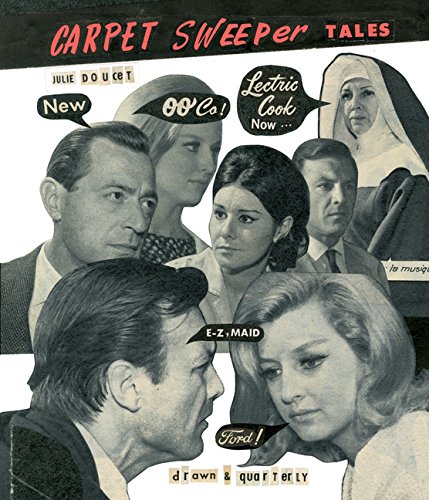 Sadly, as was driven home in comics last weekend by the unexpected and untimely death of Darwyn Cooke, that isn’t the case.
Sadly, as was driven home in comics last weekend by the unexpected and untimely death of Darwyn Cooke, that isn’t the case.
Fortunately, Québécoise artist Julie Doucet is still very much with us. However, it might not be too much of a stretch to suggest that there were a few pangs of loss when she withdrew from comics around the turn of the millennium to focus on other artistic pursuits.
That came after a decade or so of her one-woman anthology, Dirty Plotte. Landing every few months from the still fresh-faced Drawn and Quarterly, it was a stimulating mix of slice-of-life, gooey surrealism and feminist comment, delivered in a deceptively charming way through her emphatic, cluttered cartooning and a characteristic use of broken English that suggested the artist knew a lot more than she was letting on.
Now, some years later, Doucet has returned to her hometown publisher with a project that uses one of her later favoured forms, collage, to take a fresh angle on her previous practice of comics.
Each of the episodes in the 184-page Carpet Sweeper Tales presents panels and sequences from melodramatic Italian ‘fumetti’ photo-novels and overlays them with dialogue and narration cut and reassembled from a series of vintage US consumer magazines, ranging from Needlework & Crafts to Mechanix Illustrated.
Handled in a less sophisticated way, this kind of collage and ironic juxtaposition is the sort of stuff you could fill your ethically sourced tote bag with at any zine fair. However, even within this single familiar method of production, Doucet uses her vision to tease the work in a number of directions, from laugh-out-loud absurd humour to wry comment on gender roles.
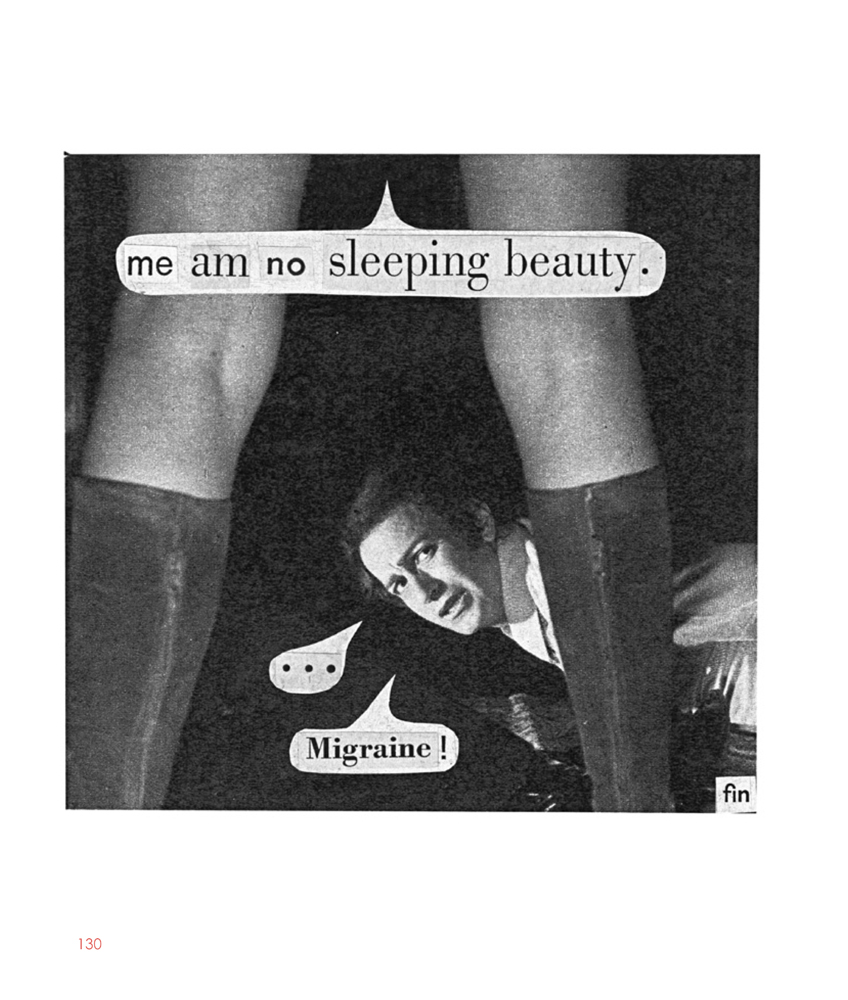 The repurposed stories range from ‘standard’ dada poetry to an altogether more glossolalic kind of scat-inflected ‘word jazz’. (For full effect, follow Doucet’s instruction to read the book out loud. If nothing else, at least you’ll probably get a seat to yourself on the bus). Some are even populated purely by punctuation marks, forcing you to think about communication and the relationship between speech and written language.
The repurposed stories range from ‘standard’ dada poetry to an altogether more glossolalic kind of scat-inflected ‘word jazz’. (For full effect, follow Doucet’s instruction to read the book out loud. If nothing else, at least you’ll probably get a seat to yourself on the bus). Some are even populated purely by punctuation marks, forcing you to think about communication and the relationship between speech and written language.
Other parts have a sharper satirical bite. An animalistic gang of leather biker boys, out on the hunt for women, bark at each other inarticulately in gutteral monosyllables. Another woman hisses and growls at a suave lothario before emitting alarming screeches as he makes his move and kisses her.
Then, in probably the book’s most striking and surprising sequence, the clouds lift and everything makes sense for a few pages. In a work that has seemingly thrived on chaos and incoherence, it’s a bold narrative play that invites the reader to consider the rest of the book – and the world around us – in a different way.
With one image on each page, it doesn’t take long to whizz through Carpet Sweeper Tales. However, Julie Doucet has performed an act of artistic alchemy on unpromising source material to produce a highly enjoyable and thought-provoking volume.
In fact, I don’t think it’d be going too far to say that it’s lovely water-lily, so life-size beauty.
Julie Doucet (W/A) • Drawn & Quarterly, $15.95





